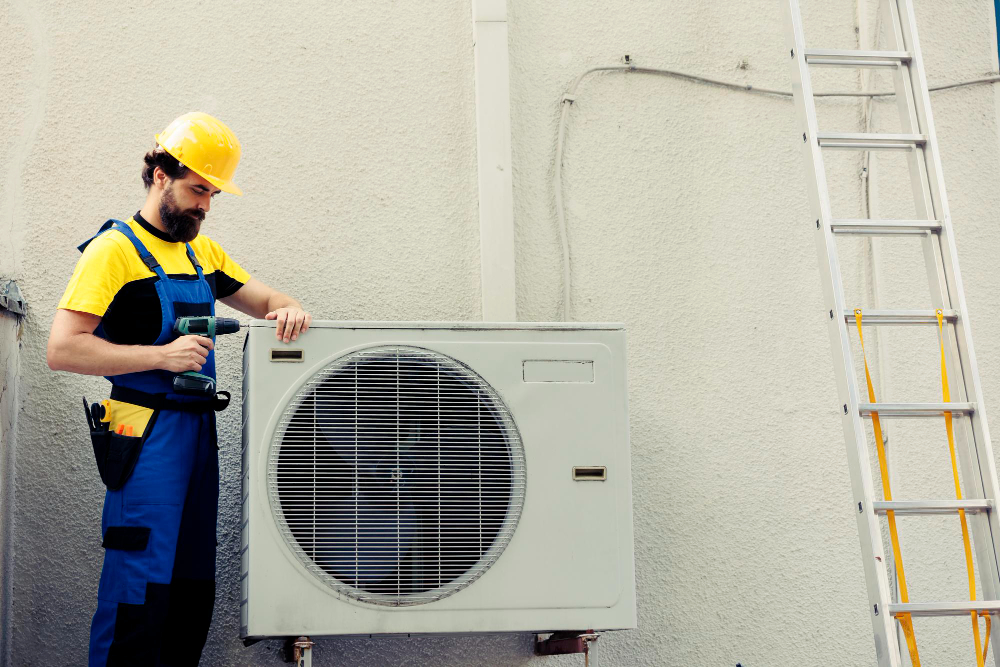Most Common HVAC Repair Issues and How to Address Them

In Florida, where the heat can be relentless, a fully functioning HVAC system isn't just a luxury—it's a necessity. However, like any other mechanical system, HVAC units can experience problems. Understanding these issues is crucial for homeowners and businesses alike, ensuring that you can maintain a comfortable environment year-round. If you're dealing with HVAC problems or looking for an HVAC supplier in Florida, Discount Air Supply is here to help.
1. Refrigerant Leaks
One of the most common issues in HVAC systems is refrigerant leaks. The refrigerant is crucial for cooling, and if the levels are low, your system may not cool properly or efficiently.
Signs of a Refrigerant Leak:
- Reduced Cooling Efficiency: If your air conditioner isn’t cooling as it used to, a refrigerant leak might be the cause.
- Long Cooling Cycles: Your system may run longer than normal.
- Hissing Sounds: This could be a sign of a significant leak.
Solution:
A professional HVAC technician should handle refrigerant issues. They will not only fix the leak but also recharge the system to the correct levels. Regular maintenance checks can prevent such problems from becoming severe.
2. Dirty Filters
Dirty or clogged filters can significantly reduce the efficiency of your HVAC system. This is one of the simplest yet most commonly overlooked issues.
Signs Your Filter Needs Changing:
- Increased Energy Bills: A dirty filter makes your system work harder, leading to higher energy consumption.
- Poor Airflow: Reduced airflow from the vents is a clear indicator.
- Dust Buildup: An unusual amount of dust in your home can be a sign.
Solution:
Replacing your air filter regularly, typically every one to three months, can keep your system running efficiently. This simple task can save you significant money and extend the life of your HVAC unit.
3. Thermostat Issues
Your HVAC system responds to the thermostat settings, and if it's malfunctioning, it can cause various issues with your system.
Common Thermostat Problems:
- Incorrect Temperature Readings: The HVAC may not maintain the desired temperature.
- System Not Turning On/Off: This could lead to inefficient energy use.
- Old Thermostat: Outdated thermostats can malfunction more easily.
Solution:
Check the thermostat's settings and ensure it's receiving power. If these steps don’t resolve the issue, it may be time to replace it, potentially upgrading to a programmable or smart thermostat for better control.
4. Mechanical Wear and Tear
HVAC systems contain various mechanical parts, including belts and bearings, which can wear out over time and cause serious damage if not addressed.
Signs of Wear and Tear:
- Grinding or Squeaking Noises: These noises often indicate loose or worn parts.
- System Inefficiency: Reduced performance could be due to mechanical issues.
Solution:
Regular maintenance checks by a professional can help identify and fix these problems before they lead to more extensive repairs or even system failure.
5. Sensor Problems
Some HVAC systems use sensors to maintain comfort levels inside the home. These sensors can become misaligned or dirty, affecting the system’s performance.
Common Sensor Issues:
- Constant Running: If the system runs continuously, a sensor issue might be the cause.
- Temperature Fluctuations: Inconsistent temperatures inside your home.
Solution:
Inspect the sensor to ensure it’s not obstructed and is close to the evaporator coil but not touching it. If problems persist, a technician should be consulted.
6. Drainage Problems
HVAC systems need to drain the moisture they collect during cooling. When the drainage becomes blocked or clogged, it can lead to water damage and increased humidity inside your home.
Signs of Drainage Problems:
- Water Leaks: Pools of water around your HVAC unit.
- Mold Growth: Unpleasant odors and visible mold near the system.
Solution:
Ensure the condensate drain isn’t clogged and clean it regularly. A professional can clear stubborn clogs and check for other related issues.
7. Electrical Issues
Electrical problems such as tripped breakers or blown fuses can prevent your HVAC from working properly and may pose serious safety hazards.
Signs of Electrical Issues:
- System Won’t Start: The HVAC system might not turn on at all.
- Frequent Circuit Breaker Trips: This indicates potential electrical problems within the system.
Solution:
Check for and reset tripped breakers or replace blown fuses. However, if problems persist, or if you're unsure, contact a professional immediately to avoid safety risks.
Conclusion
Understanding these common HVAC problems and their solutions can help you maintain a comfortable and efficient environment in your home or business. Regular maintenance is crucial to prevent many of these issues, ensuring your system runs smoothly throughout the year.
For comprehensive support and high-quality products, contact Discount Air Supply, a trusted HVAC supplier in Florida. Our experts are ready to assist you with all your HVAC needs, from routine maintenance to complex repairs.